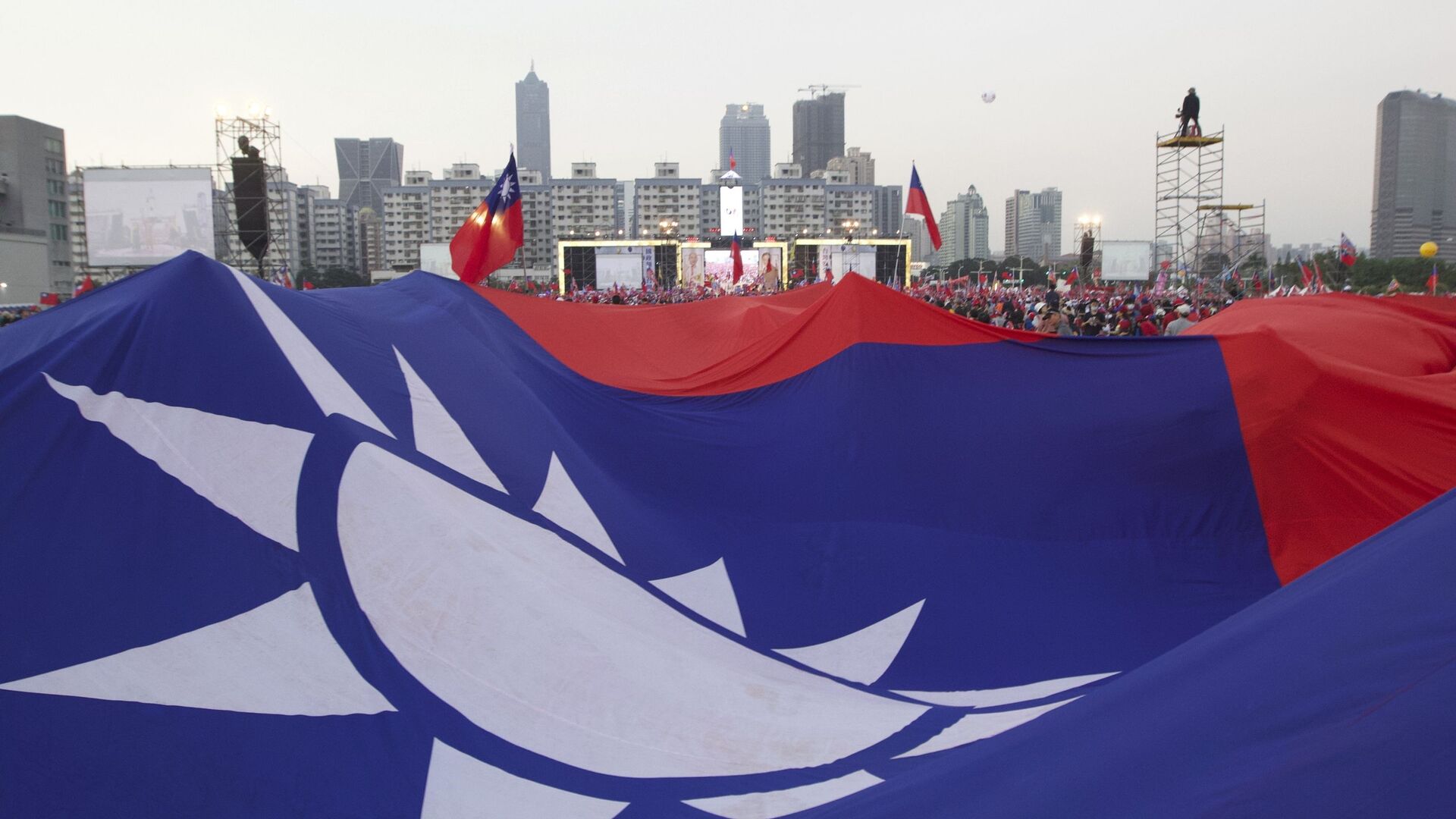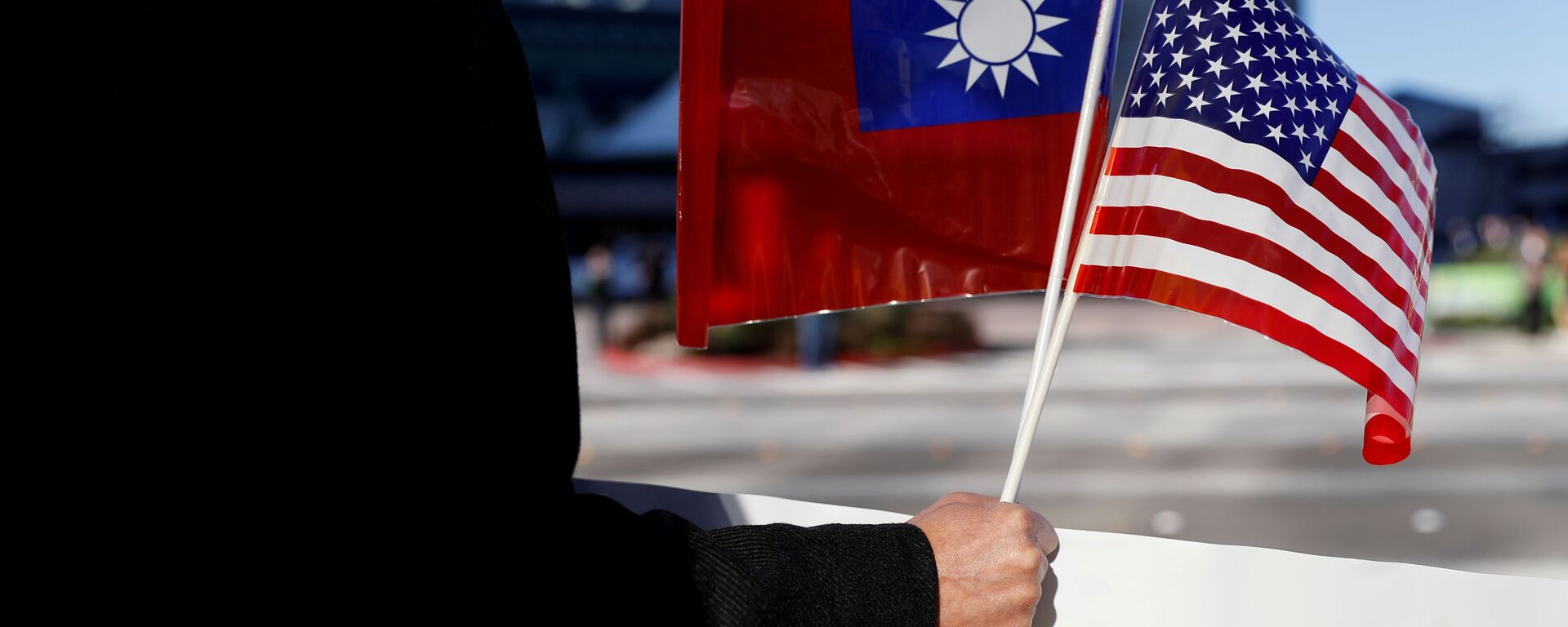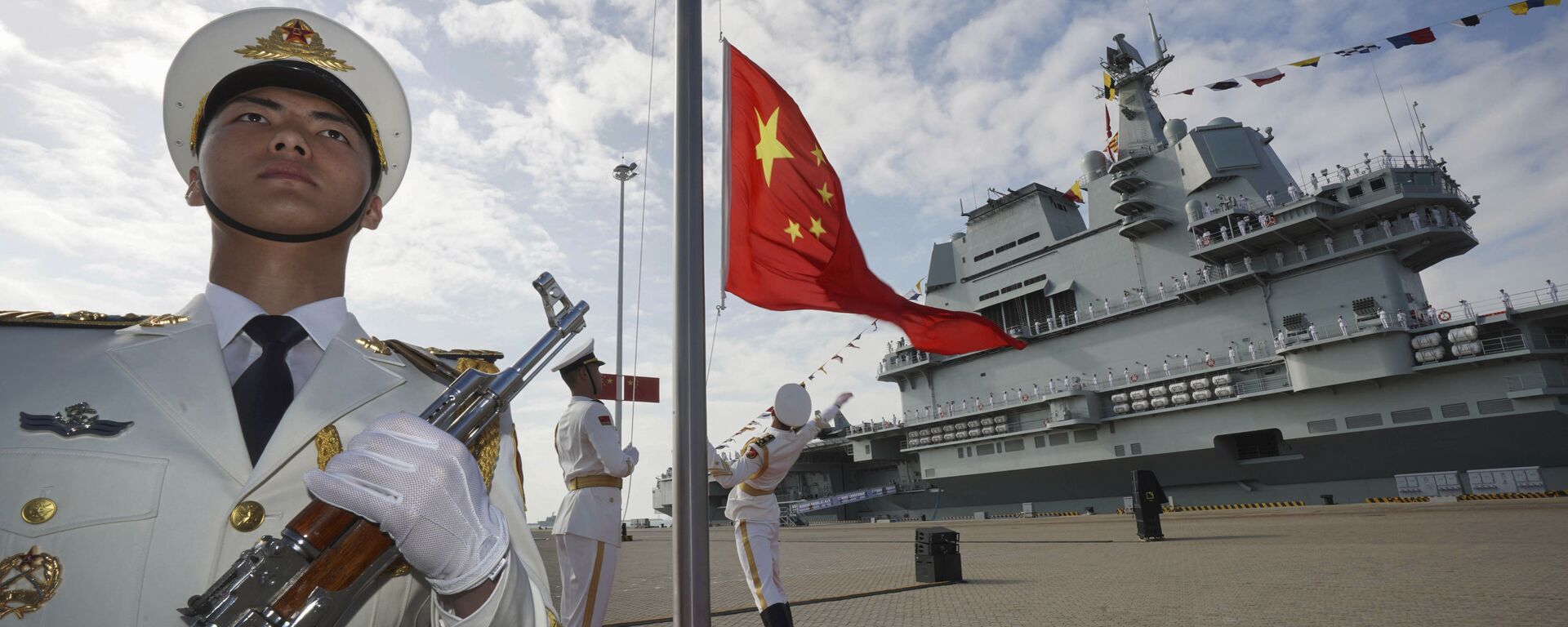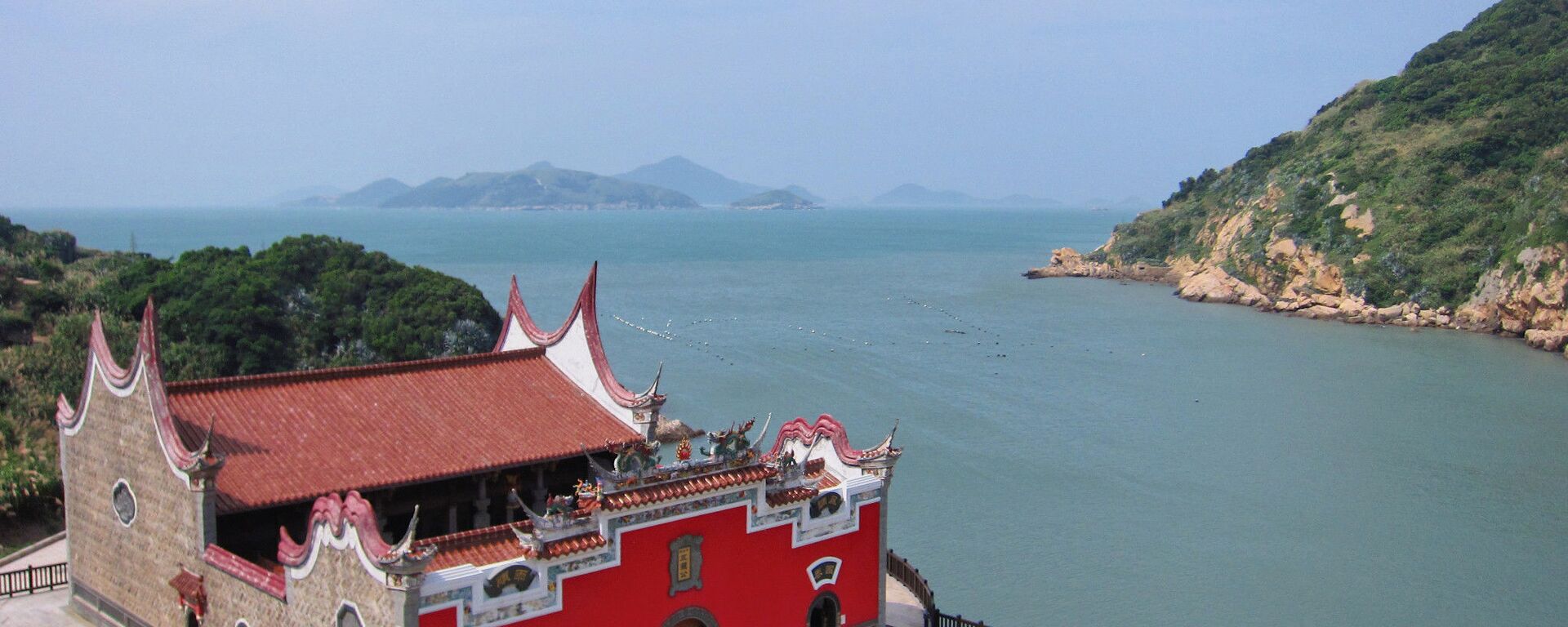Chinese Media Says US, Taiwan to Be Taught ‘Lesson’ if Taipei’s Washington Diplomatic Office Renamed
14:15 GMT 13.09.2021 (Updated: 12:42 GMT 19.06.2023)

© AP Photo / Ng Han Guan
Subscribe
The Taiwan issue has snowballed into one of the most acute sources of tension between China and the US in recent months, starting with Biden officials’ decision to invite Taipei’s de facto ambassador in Washington to the president’s inauguration. Beijing considers the island an integral part of China.
A major Chinese newspaper has issued a chilling warning to the United States and Taiwan urging them not to proceed with reported plans to rename Taipei’s diplomatic office in Washington.
On Saturday, sources said to have been briefed on internal discussions told the Financial Times that the Biden administration was “seriously considering” a request by Taiwan to change the name of its de facto embassy in the US from the “Taipei Economic and Cultural Representative Office” to simply the “Taiwan Representative Office”.
According to the business newspaper, Biden’s Asia advisor Kurt Campbell personally backs the idea with the proposal also enjoying “wide support” in the National Security Council and the State Department.
China’s Embassy in Washington slammed the alleged proposal, with a spokesperson telling FT that the US government “must stop any official interaction with Taiwan, refrain from sending any wrong signals to ‘Taiwan independence’ forces or attempting to challenge China’s bottom line, and properly and prudently handle Taiwan-related matters, so as not to seriously damage China-US relations and cross-Strait peace and stability.”
China’s Global Times – one of the country’s largest and most authoritative English-language newspapers, went further, issuing an unsigned editorial warning that Beijing would be forced to teach America and Taiwan island “a real lesson,” up to and including direct military conflict, if they proceeded with the renaming.
The Global Times explained that a renaming of the diplomatic office would signify Washington’s “basic abandonment of its ‘one-China policy’,” and “constitute a significant change surrounding the Taiwan question.” The outlet recalled that the Baltic nation of Lithuania recently made similar plans to open a ‘Taiwan Representative Office’ in Vilnius and an equivalent ‘Lithuania Representative Office’ in Taiwan.
Lithuania’s decision sparked a major diplomatic spat, with Beijing recalling its ambassador to Lithuania, and moving to cut trade with the Eastern European nation, which continues to face an economic downturn which began all the way back in 2008 and which has been exacerbated by the halt in food exports to Russia in 2014, plus the coronavirus in 2020.
Commenting on the US’s reported plans to ‘follow Lithuania’s example’, the Global Times warned that if Washington proceeds, “a wave of name changes of the island’s missions” among US allies would begin.
“The US knows well it’s a significant and serious matter. It is leaking certain information to test the Chinese mainland’s response. But, is there really anything to test? The Chinese mainland has no other choice but take the challenge and prepare for a showdown with the US if it pushes the matter to the tipping point of a showdown. Should the US rename the island’s mission in Washington as ‘Taiwan Representative Office’, the Chinese mainland should respond to it in a punitive way no lighter than it did with Lithuania,” the paper stressed.
The outlet cited a number of ways that Beijing can “punish” Washington and Taipei. These might include recalling the People’s Republic’s ambassador to the US, plus “severe economic and military measures to combat the arrogance of the US and the island of Taiwan.” In addition, China could “impose severe economic sanctions” against Taiwan or even begin “an economic blockade.”
Global Times emphasized that the People’s Liberation Army has the ability to fly jet fighters over the island and place its airspace “into the patrol area of the PLA…It is anticipated that the Taiwan army will not dare to stop the PLA fighter jets from flying over the island. If the Taiwan side dares open fire, the Chinese mainland will not hesitate to give ‘Taiwan independence’ forces a decisive and destructive blow’.”
The newspaper suggested that Beijing must respond forcefully at every step, before the US and Taiwan take new steps toward Taipei’s possible formal diplomatic recognition by Washington, which it says could culminate in US troops being stationed on the island and US warships being sailed into its ports.
In its report on the possible diplomatic office name change, FT indicated that senior US and Taiwanese officials were set to hold “sensitive talks” in Annapolis, Maryland, about an hour’s drive from Washington DC, last Friday, with the Taiwanese delegation including Joseph Wu, the island’s de facto foreign minister, who is barred from visiting Washington.
Global Times warned that if China does not take the necessary measures, “next time, they may publicly hold the meeting even in the US State Department in Washington, DC. As the US will hold [its] ‘Summit for Democracy by the end of this year, if we do not contain the insolence of the US and the Taiwan island, Washington might even really invite [Taiwanese leader] Tsai Ing-wen to participate in the summit.”
Taiwan Tensions
Taiwan became a sudden source of tensions between China and the United States immediately after Joe Biden stepped into the Oval Office in January, after staffers invited Taipei’s de facto ambassador to his inauguration. The conflict was exacerbated in the months that followed amid new US weapons sales to Taiwan, and constant US ‘freedom of navigation’ deployments through the Taiwan Straits, which the People’s Republic has responded to with its own aerial and naval manoeuvres.
Last month, Biden earned fresh ire from Chinese officials after suggesting that, unlike in Afghanistan, the US would rush to the defence of Taipei if it was attacked by “bad guys". The White House immediately moved to distance itself from the president’s remarks, saying the US position of “strategic ambiguity” toward Taiwan remains unchanged.
Taiwan, officially known as the ‘Republic of China’, severed all ties with mainland China in 1949, in the aftermath of the Chinese Civil War, in which Mao Zedong’s communist forces defeated the Kuomintang nationalists and forced them to flee to the island. Beijing and Taipei began to improve economic relations and establish informal diplomatic ties in the 1980s and 1990s, with a view to eventual peaceful reunification of the island with the mainland along the ‘One China – Two Systems’ model. While the Kuomintang now generally favours reunification, Taiwan’s current ruling party – the centre-liberal left Democratic Progressives, are opposed to such a scenario, and have carefully lobbied the US to step up its commitments to Taipei. Chinese President Xi Jinping has made Taiwan reunification a central plank of his leadership agenda.
Tensions over Taiwan are only one of several major hot spots in ties between Beijing and Washington, with others include the multi-trillion dollar economic conflict involving trade, tariffs and technology transfers begun by Donald Trump (and which Biden has not cancelled), US meddling in Hong Kong and Xinjiang, and America’s rejection of China's maritime territorial claims in the South China Sea. Last month, Chinese ambassador to the US Qin Gang reportedly told US officials to “please shut up” if they could not find a constructive way to resolve differences between the two countries.



